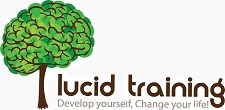A WEEK OF EXCUSES
“The basis of moral and intellectual grow is the capacity to criticize oneself.”
Samuel Bois, The Art of Awareness
On Saturday, at the end of the week, I heard a commentator summarize the week of news by saying, “This has been a week of excuses.” He then talked about the interviews that Hillary Clinton did and her long list of all of the things that caused her to lose the election. Then he talked about the news of the previous two days about Kathy Griffin and her over-the-line behavior of holding a bloody head of the president as if she was an ISIS terrorist who had just beheaded President Trump.
Regarding the Clinton interviews, she did begin with the right words, “I take full responsibility for everything I said and did.” But then she went on to blame just about everyone and everything for the loss. She blamed Trump, Comey, the Russians, wiki leaks, the FBI, etc., she even blamed the Democratic party who she said gave her “nothing.” At that point the commentator read off a list of 60 things that she has blamed that caused the loss of the election— and what was not on that list was her own actions and lack of actions, some of which were highly questionable, some possible criminal actions.
With Griffin, after her stunt, and the almost universal disgust and disagreement with what she did, and then some consequences in terms of losing sponsors, she then blamed people for not getting her humor, Trump for “breaking” her, a “group of old white men” for destroying her. Somehow she seemed to forget that she started it all and that there are consequences to actions.
All of that got me thinking about this all-too-human experience that we all know, and know all-too-well, that of excuse making, blaming, and playing the victim. Generally, we think of that way of thinking and feeling as the cognitive distortions that are characteristic of small children. Many decades ago psychologists Albert Ellis and Aaron Beck identified the basic cognitive distortions including blaming, exaggerating, awfulizing, personalizing, etc. as inevitable thinking patterns that we go through as we grow up and distortions that we grow out of when we mature as adults.
Given that, why then do so many adults blame, accuse, make excuses, shift responsibility, refuse to accept consequences of their actions, and play the victim? There are several answers to this. One is that we regress. Put almost any person under enough stress and pressure, and almost everyone regresses to more childish and primitive responses. That’s why these behaviors occur when things are not going well. They occur when a person experiences the distress of a failure, a public embarrassment, financial loss, and threats to one’s reputation.
In those kinds of situations, it is common for a person to regress. And in the regressing, the childish in thinking and feelings come out. What’s needed in such moments is both recognition and compassion from others and from oneself, the ability to reduce the stress by recognizing the cognitive distortions and not acting on them or expressing them. But as we all know, that’s easier said than done. Catching oneself in cognitive distortions requires a meta-level awareness and that is developed in calm times when a person takes the time and effort to learn more adult thinking patterns. That’s actually one of the great benefits of the NLP Meta-Model of Language— the essential Communication Model and the Meta-States Model— for develop self-reflexive awareness.
Not only do we humans regress under pressure, but many have not learned how to be healthily responsible. To this day, because so many people confuse “blame” with “responsibility,” they are internally driven to avoid being held responsible. That’s why they cover-up and lie. For them, it feels as if they are being blamed. And since no one wants to be blamed, when they make that confusion, they refuse to be held responsible in a healthy way.
The truth is that fully accepting one’s response-abilities is an act of strength. It shows personal power and congruency. It is also the foundation for change, personal development, and self-actualization. Failing to own one’s ability to response puts one in a victim’s role— as if you have no power or control or choice. But that’s a lie. We always have the power to respond to life’s events from our values, goals, and meanings.
Sometimes people blame, accuse, counter-attack, etc. because it is the only coping mechanism they have. They don’t know what else to do and feeling distressed and unable to look at their own behaviors and/or to face the consequences of their actions —the best thing they know to do is to either play the victim of “poor me” or counter-attack. The amazing thing is to see this in celebrities and people who have all of the advantages that most people are striving for— money, popularity, influence, name-recognition, opportunities, signs of wealth, etc.
What we need is a week of taking responsibility. What we need are grown up men and women who care more about truth than their reputations, more about learning than maintaining a persona of being right, more about authenticity than pretending to be something more than human.
“Every act of taking responsibility is a great step toward self-actualization.”
Abraham Maslow

